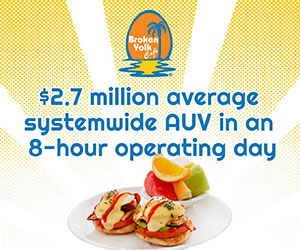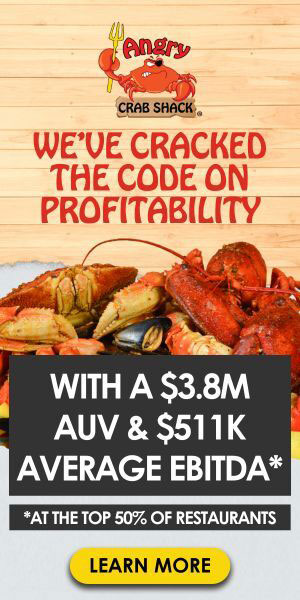Full Speed Ahead
(Friday, December 29, 2006) - Some might think celebrating a 15th anniversary is a time for leisure and reflection--a time to sit back, rest on your laurels and cozy up with old habits. Not for this franchisor. With an astonishing 26,197 locations worldwide, it's the 15th time that Subway has claimed the top spot in Entrepreneur's Franchise 500® --and the franchise is as ambitious as ever. Subway's success begs the question: How much can one franchise system grow? Where corporate types might see limits, entrepreneurs like Subway co-founder Fred DeLuca see only opportunity.
And Subway is seeking like-minded franchisees who share its entrepreneurial vision. "For a franchise system to work well, you really need people with an entrepreneurial mind-set," says DeLuca, "because while you have a large, overarching system that everybody has to work with, a lot of local issues have to be handled."
Those traditional entrepreneurial traits, such as the abilities to think on your feet and solve problems creatively, are just the sort that have helped keep the Subway brand fresh and relevant in an ever-changing fast-food market, says DeLuca. "There is always redevelopment of the market going on," he says. "Parts of cities are changing, new shopping centers are being built, new housing is being built, and we always have to be scouting those new markets."
A ground force of entrepreneurially minded franchisees with an eye toward innovation has helped develop those new markets--and has been instrumental in the growth of Subway's more than 6,000 nontraditional locations in places like convenience stores, hospitals, schools and even inside retail stores such as Wal-Mart. An all-kosher Subway, located within a Jewish community center in Cleveland, recently made headlines as a successful example of this strategy to expand into innovative locales. "The key is to try to accommodate the needs of the customers and bring the food to where the customers congregate," says DeLuca. "And that requires a lot of local initiative. Some of these entries into nontraditional markets would never have occurred if we had to do it from the corporate level."
However, there have recently been some rumblings of discontent in the franchisee run organizations. The Subway Franchisee Advertising Fund Trust and the North American Association of Subway Franchisees have brought lawsuits against Subway corporate, Doctor's Associates Inc., alleging that DAI's recent changes to its franchise agreement take control of franchisee advertising funds away from independent franchisee boards and give it to Subway corporate. DeLuca contends that DAI's decision to change the franchise agreement was to compel the advertising fund to adhere to Subway's transparency policy--to disclose information about SFAFT's expenses and decision making, for example. "That's a point of contention," says DeLuca, "and we're working through it right now."
Thinking Global
Working through challenges has helped Subway in its ambitious international expansion plan as well. Aiming for 7,500 international locations (not including stores in Canada) by 2010, it already has 3,767 restaurants in more than 80 countries, including England, France and Germany. "We're working at building the infrastructure in all these countries," says DeLuca. "And it looks to us like the opportunity internationally in the long run is larger than the opportunity in the U.S. It might be several times the size of the U.S. opportunity."
With global growth comes global cooperation, notes DeLuca, as many franchisee co-ops--such as the Independent Purchasing Cooperative, which has international members--often share strategies about successful distribution and sourcing. The serendipitous outcome of such affiliations tends to be price savings and quality improvements across the board.
Getting a foothold into new countries and building the Subway brand is a challenge DeLuca embraces. With little name recognition, few established customers and different sets of laws and languages to contend with overseas, there are many hurdles to overcome, even for a seasoned franchisor such as Subway. "The key is really making sure you understand the challenges and [that you're] working against all of [them] simultaneously as you enter these new markets," DeLuca says. "That's probably what makes the international market so exciting--because while we're seeing great growth, it seems like countries take off, but they don't take off all at once. You don't know which one is going to blast off next."
That blast-off energy is exactly what an entrepreneurially minded franchisee brings to the competitive fast-food market--and DeLuca is banking on franchisees' enthusiasm to stay ahead of the pack. Though he cites burger chains as Subway's main competition, he notes that the marketplace is laden with variety--from Mexican and Asian fare to chicken brands--all battling for consumer food dollars. But with true entrepreneurial franchisees in the trenches who each have a finger on the pulse of local competition, innovation tends to be propelled upward. "Different people are experimenting with different approaches, so [we] keep a close eye on what's happening in the field," says DeLuca. "The way we do it is by giving [franchisees] a fair amount of authority to go forth and get things done--then watching what they're doing and teaching others. [The ideas] kind of transfer sideways, up and around."
Leisure, reflection, taking a break--who's got the time? With goals to boost North American sandwich sales 50 percent by 2010, Subway's just getting started.
###
| ADVERTISE | SPONSORED CONTENT |
Franchise News
By Type
- Expansions & Growth
- Financial & Earnings Claims
- Mergers & Acquisitions
- Personnel Changes
- Conferences & Events
- Product Announcements
- Media Coverage
- Strategic Alliances
By Sector
| ADVERTISE | SPONSORED CONTENT |



 The franchise opportunities listed above are not related to or endorsed by Franchising.com or Franchise Update Media Group. We are not engaged in, supporting, or endorsing any specific franchise, business opportunity, company or individual. No statement in this site is to be construed as a recommendation. We encourage prospective franchise buyers to perform extensive due diligence when considering a franchise opportunity.
The franchise opportunities listed above are not related to or endorsed by Franchising.com or Franchise Update Media Group. We are not engaged in, supporting, or endorsing any specific franchise, business opportunity, company or individual. No statement in this site is to be construed as a recommendation. We encourage prospective franchise buyers to perform extensive due diligence when considering a franchise opportunity.